Has Israel’s Qatar strike scuppered a ceasefire?
Netanyahu ‘gambles’ on ‘overwhelming strength’ rather than diplomacy in attack on Hamas negotiation team in Doha
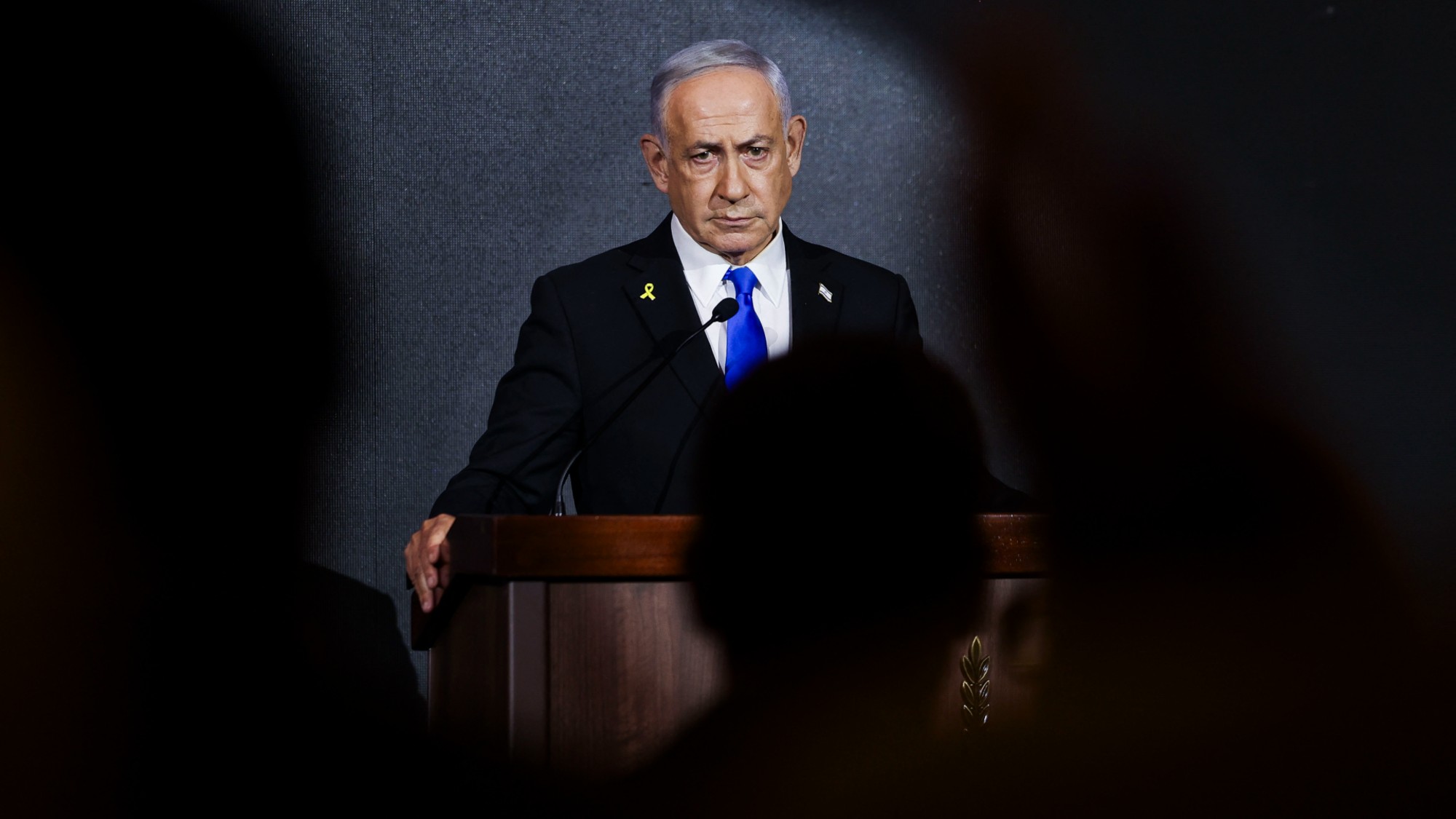
A free daily email with the biggest news stories of the day – and the best features from TheWeek.com
You are now subscribed
Your newsletter sign-up was successful
Israel’s president has defended his country’s attack on Hamas leaders in Doha amid growing international condemnation over the targeted air strike on Qatari territory. “If you want to move on, you have to remove some of the people if they are not willing to get that deal,” said Isaac Herzog.
What did the commentators say?
By attacking “parties to a negotiation in the midst of their deliberations”, Israel has “literally blown up” Gaza ceasefire talks, said ABC News.
The air strike shows “it has no interest” in stopping the war in Gaza. The Hamas negotiators were the very people who “could approve a ceasefire and had already agreed to multiple proposals before”. This assassination attempt will “make any country or group question the point” of negotiating with Israel.
The Week
Escape your echo chamber. Get the facts behind the news, plus analysis from multiple perspectives.

Sign up for The Week's Free Newsletters
From our morning news briefing to a weekly Good News Newsletter, get the best of The Week delivered directly to your inbox.
From our morning news briefing to a weekly Good News Newsletter, get the best of The Week delivered directly to your inbox.
Whatever “diplomatic momentum existed” has “evaporated into thin air” since Israel struck Qatar, said Daniel DePetris in The Spectator. The latest draft ceasefire was “tabled just a few days ago” but it “now lies in tatters, if it was a serious proposal to begin with”. Benjamin Netanyahu and his government have “dealt a serious blow to a diplomatic process that was already on life support”; this was probably “the goal all along”.
Netanyahu has “clearly concluded” that ceasefire negotiations were “leading nowhere”, said the Council on Foreign Relations. So “decapitating Hamas” is a more efficient way for Israel to “advance its war aims of destroying the group, bringing home Israeli hostages” and making sure that Hamas “can never rule again”.
For Hamas, the strike “could be a warning to get on with things” and “accept the deal on offer”, said David Patrikarakos on UnHerd. Either way, Netanyahu has “staked his legacy” on the “gamble” that “overwhelming strength and the repeated destruction of Israel’s enemies” can achieve "what diplomacy with Hamas has not”.
What next?
The Qatari government has commissioned a legal team to look into holding Netanyahu responsible for breaking international law with the attack.
A free daily email with the biggest news stories of the day – and the best features from TheWeek.com
Meanwhile, the EU may suspend bilateral support for Israel in the wake of the incident, said European Commission President Ursula von der Leyen. The proposed measures include sanctions targeting “extremist ministers and violent settlers” as well as a partial freeze on trade agreements.
The Doha attack could also imperil the Abraham Accords that normalised relations between Israel and several Arab states, said Rami G. Khouri on Al Jazeera. How Washington handles the “intensifying Israeli attacks” on Arab states could “shape the future” of relations between the US and the Gulf nations.
Chas Newkey-Burden has been part of The Week Digital team for more than a decade and a journalist for 25 years, starting out on the irreverent football weekly 90 Minutes, before moving to lifestyle magazines Loaded and Attitude. He was a columnist for The Big Issue and landed a world exclusive with David Beckham that became the weekly magazine’s bestselling issue. He now writes regularly for The Guardian, The Telegraph, The Independent, Metro, FourFourTwo and the i new site. He is also the author of a number of non-fiction books.
-
 Local elections 2026: where are they and who is expected to win?
Local elections 2026: where are they and who is expected to win?The Explainer Labour is braced for heavy losses and U-turn on postponing some council elections hasn’t helped the party’s prospects
-
 6 of the world’s most accessible destinations
6 of the world’s most accessible destinationsThe Week Recommends Experience all of Berlin, Singapore and Sydney
-
 How the FCC’s ‘equal time’ rule works
How the FCC’s ‘equal time’ rule worksIn the Spotlight The law is at the heart of the Colbert-CBS conflict
-
 Israel retrieves final hostage’s body from Gaza
Israel retrieves final hostage’s body from GazaSpeed Read The 24-year-old police officer was killed during the initial Hamas attack
-
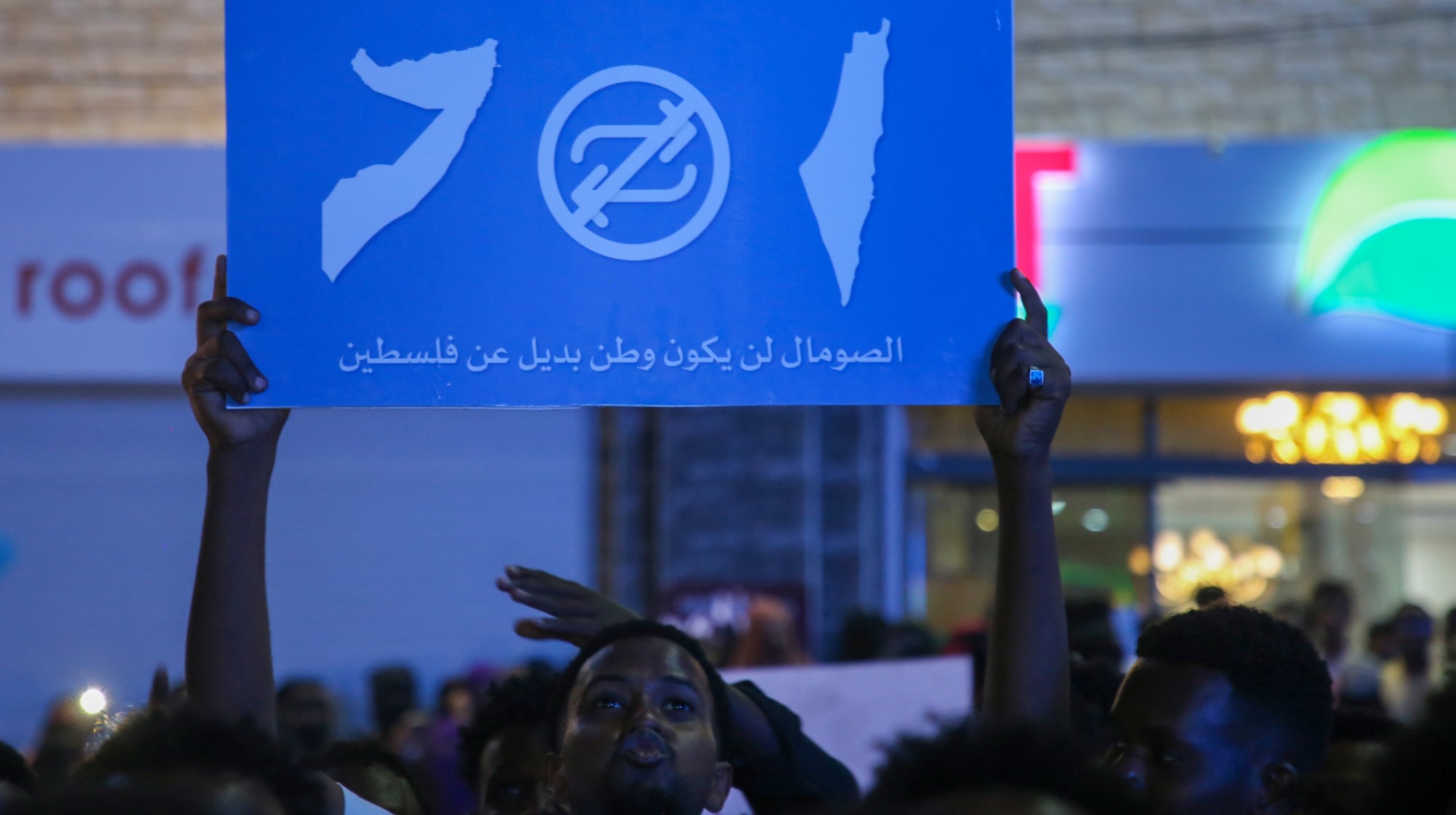 Why recognizing Somaliland is so risky for Israel
Why recognizing Somaliland is so risky for IsraelTHE EXPLAINER By wading into one of North Africa’s most fraught political schisms, the Netanyahu government risks further international isolation
-
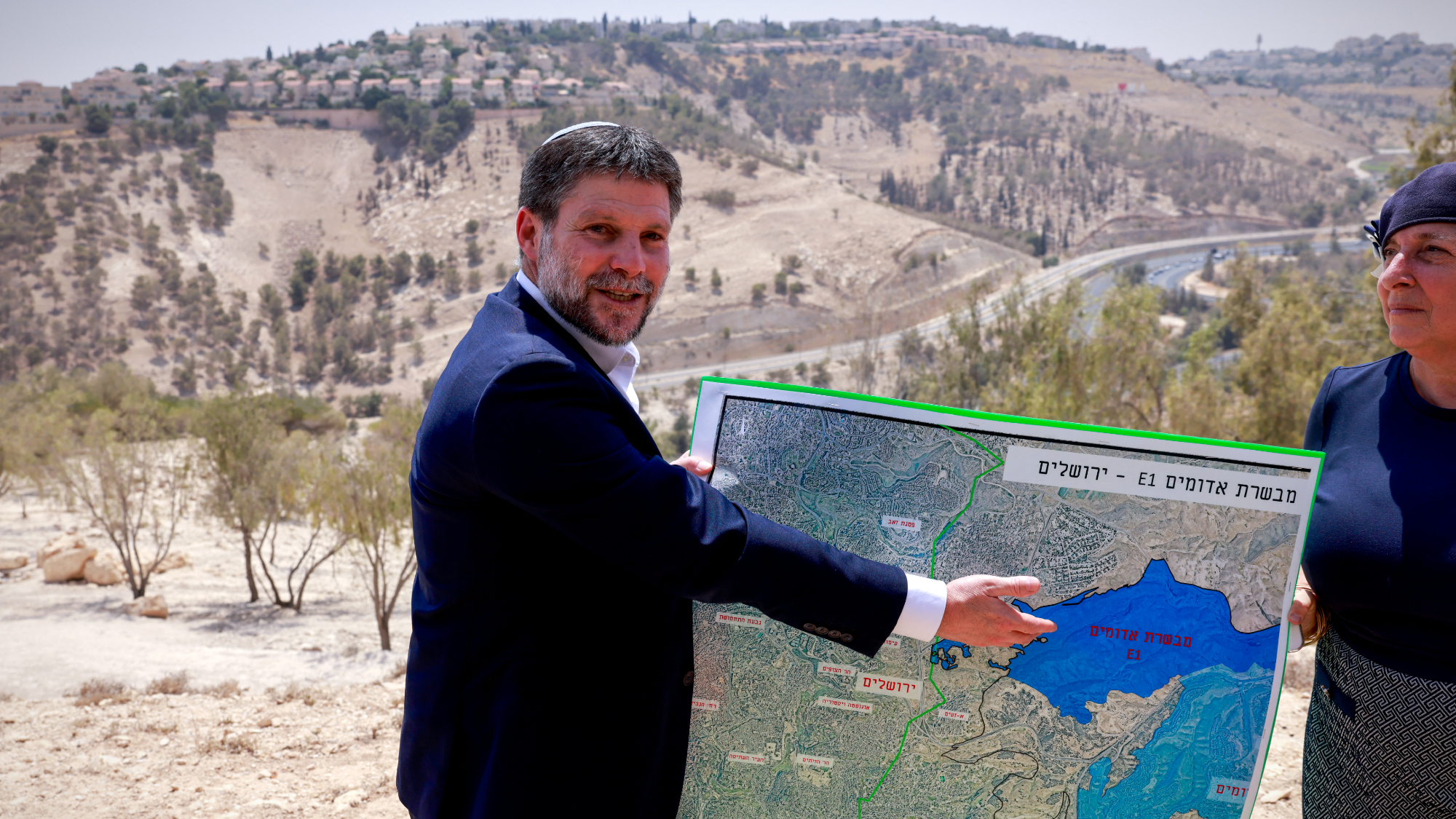 Israel approves new West Bank settlements
Israel approves new West Bank settlementsSpeed Read The ‘Israeli onslaught has all but vanquished a free Palestinian existence in the West Bank’
-
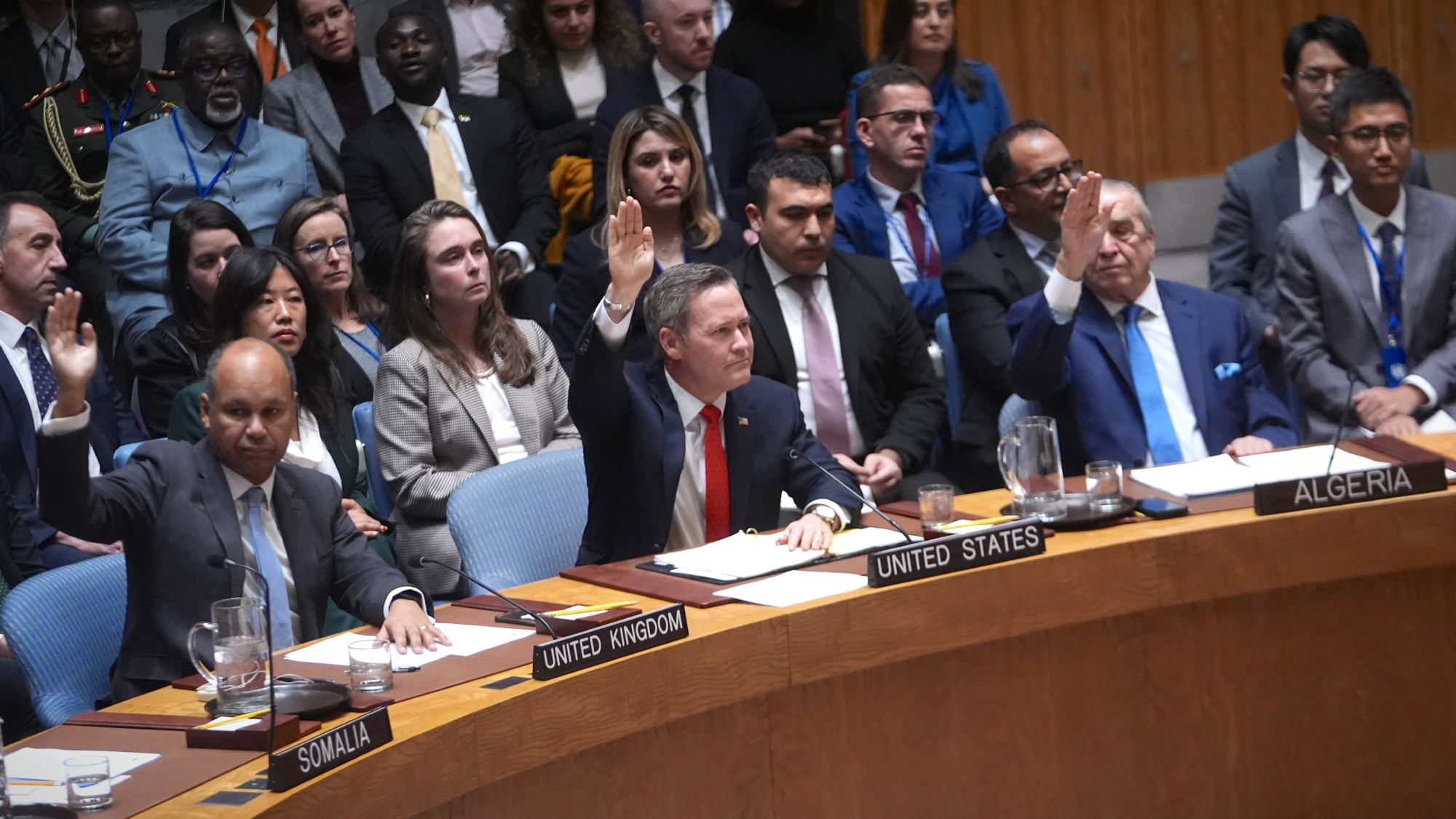 UN Security Council backs Trump’s Gaza peace plan
UN Security Council backs Trump’s Gaza peace planSpeed Read The United Nations voted 13-0 to endorse President Donald Trump’s 20-point plan to withdraw Israeli troops from Gaza
-
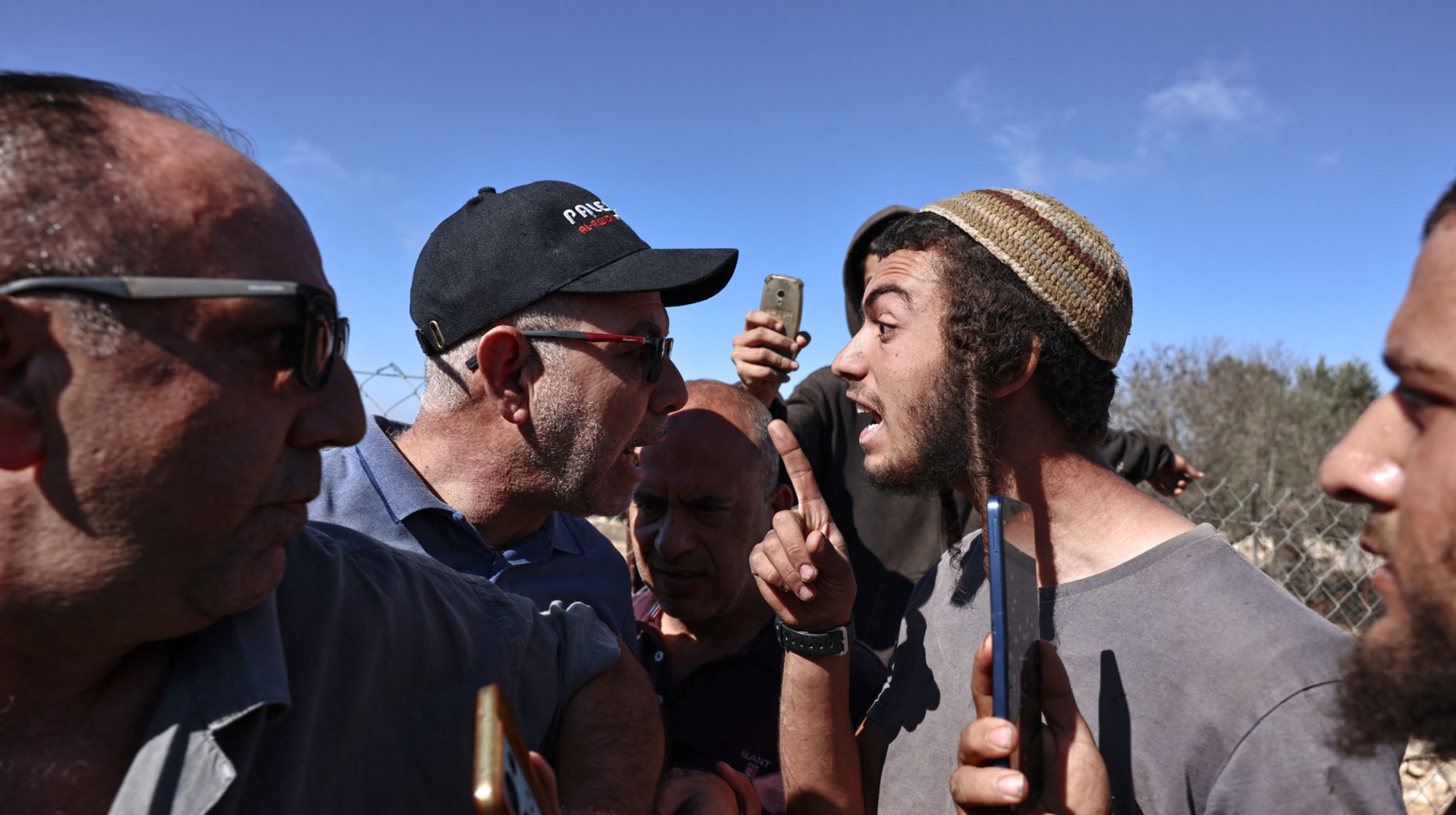 Israel jolted by ‘shocking’ settler violence
Israel jolted by ‘shocking’ settler violenceIN THE SPOTLIGHT A wave of brazen attacks on Palestinian communities in the West Bank has prompted a rare public outcry from Israeli officials
-
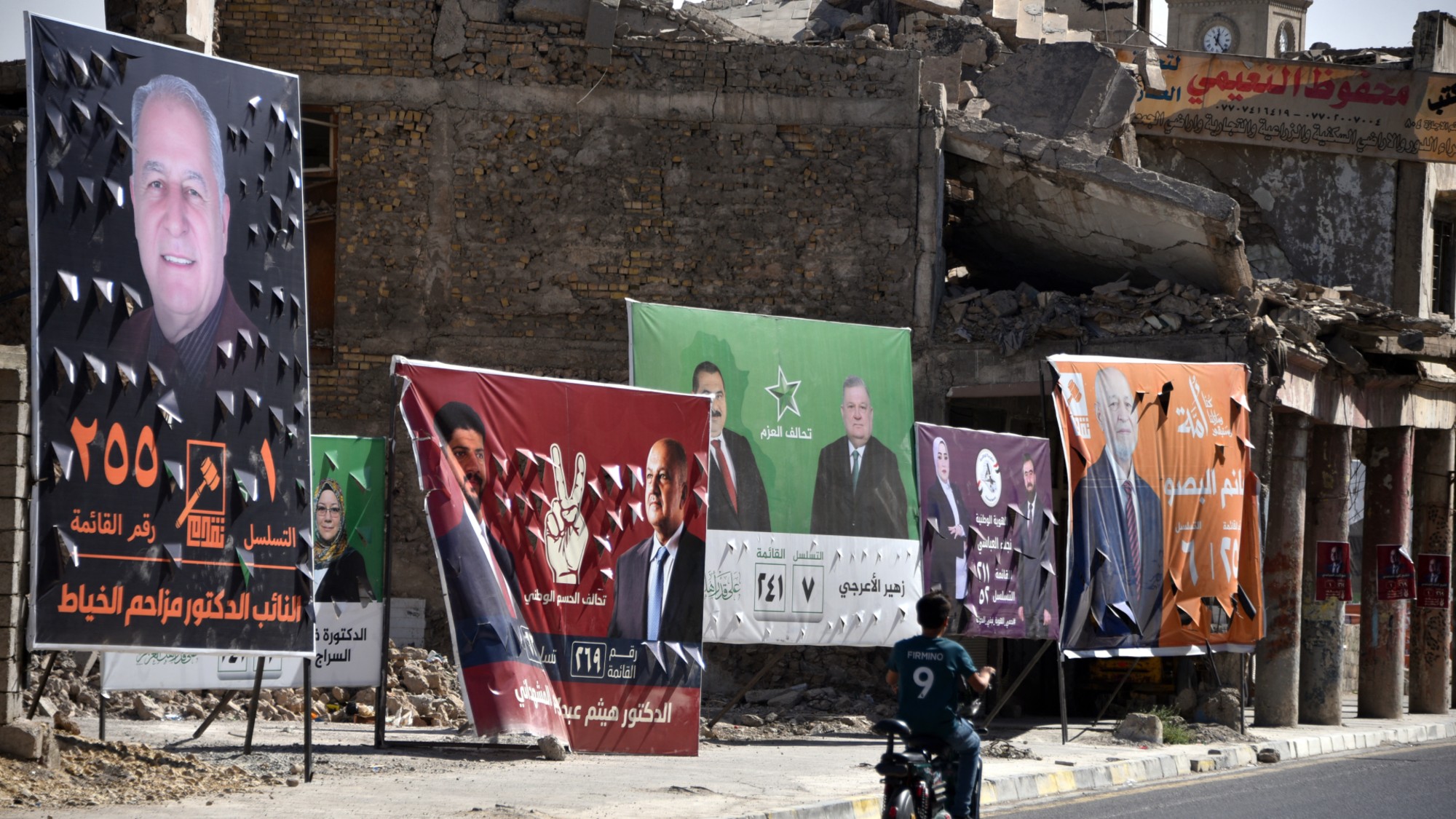 Why these Iraqi elections are so important
Why these Iraqi elections are so importantThe Explainer The US and Israel are increasingly pressuring Baghdad to tackle Iran-backed militants, while weakened Iran sees Iraq as a vital remaining ally
-
 Israel arrests ex-IDF legal chief over abuse video leak
Israel arrests ex-IDF legal chief over abuse video leakSpeed Read Maj. Gen. Yifat Tomer-Yerushalmi had resigned from her post last week
-
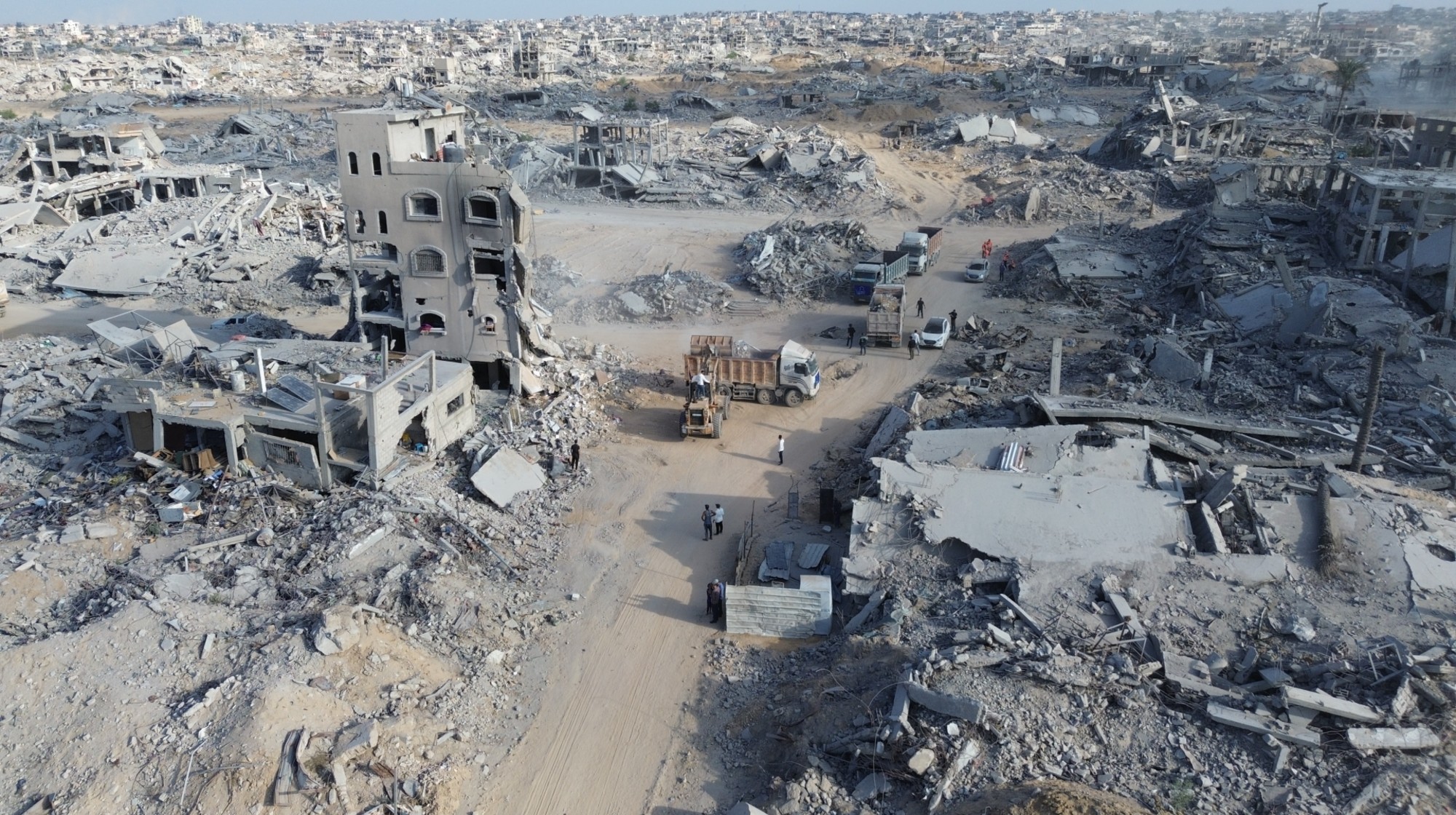 Gaza ceasefire teeters as Netanyahu orders strikes
Gaza ceasefire teeters as Netanyahu orders strikesSpeed Read Israel accused Hamas of firing on Israeli troops